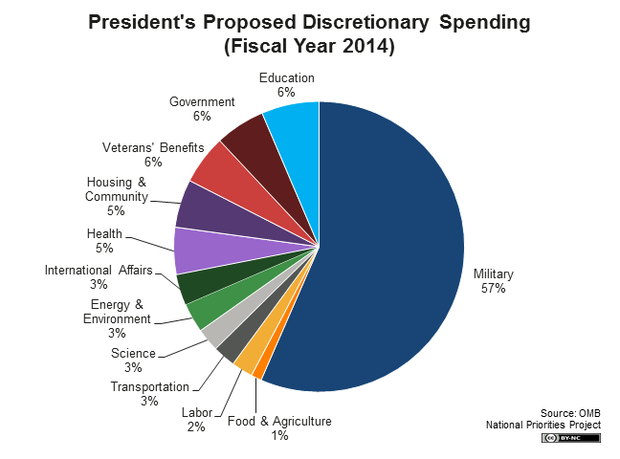Welcome to DU!
The truly grassroots left-of-center political community where regular people, not algorithms, drive the discussions and set the standards.
Join the community:
Create a free account
Support DU (and get rid of ads!):
Become a Star Member
Latest Breaking News
General Discussion
The DU Lounge
All Forums
Issue Forums
Culture Forums
Alliance Forums
Region Forums
Support Forums
Help & Search
Veterans
Related: About this forumCongress ended the government shutdown, but ...
http://hamptonroads.com/2013/10/congress-ended-government-shutdownCongress ended the government shutdown, but ...
By Bill Bartel
The Virginian-Pilot
© October 28, 2013
When Congress ended the government shutdown by agreeing to fund federal operations through mid-January, lawmakers gave themselves some breathing room to draft a more complete budget for the rest of 2014.
But the extra time is little comfort for those in Hampton Roads whose livelihoods are tied to the defense industry.
That's because Congress has not slowed the forward march of automatic federal budget cuts - known as a sequester - that could mean the cancellation of lucrative ship maintenance or construction contracts, the elimination of base construction and repair projects, and a general slowdown of other military-related work. Defense contracts provide thousands of skilled jobs and pump hundreds of millions of dollars into the region's economy.
With no certainty that a divisive Congress will agree to stop the deep cuts, 2014 "is going to be a very uncertain, high-anxiety year that we're just going to slog through the best we can," said Craig Quigley, executive director of the Hampton Roads Military and Federal Facilities Alliance. "The immediate effect right now is a lot of angst and worry."
unhappycamper comment: Keep in mind we are talking about a 5% cut in the military budget.

Five fucking percent.
Let's put this in perspective.
http://www.cbpp.org/cms/?fa=view&id=4036
November 1 SNAP Cuts Will Affect Millions of Children, Seniors, and People With Disabilities
By Dottie Rosenbaum and Brynne Keith-Jennings
October 24, 2013
The 2009 Recovery Act’s temporary boost in Supplemental Nutrition Assistance Program (SNAP) benefits ends on November 1, 2013, which will mean a benefit cut for each of the nearly 48 million SNAP recipients — 87 percent of whom live in households with children, seniors, or people with disabilities. House and Senate members who are now beginning to negotiate a final Farm Bill should keep this benefit cut in mind as they consider, in reauthorizing the SNAP program, whether to make even deeper cuts.
The November 1 benefit cut will be substantial. A household of three, such as a mother with two children, will lose $29 a month — a total of $319 for November 2013 through September 2014, the remaining 11 months of fiscal year 2014. (See Figure 1.) The cut is equivalent to about 16 meals a month for a family of three based on the cost of the U.S. Agriculture Department’s “Thrifty Food Plan.” Without the Recovery Act’s boost, SNAP benefits in fiscal year 2014 will average less than $1.40 per person per meal. Nationally, the cut totals about $5 billion in 2014 and a total of $11 billion over the fiscal year 2014 to 2016 period.[1] (See Table 1.)
The SNAP benefit cut will make it even harder for families to put food on the table. More than 80 percent of SNAP households have monthly income below the federal poverty line ($19,500 a year for a family of three), and more than 40 percent live in deep poverty, with income below half of the poverty line. The Recovery Act’s temporary benefit increase boosted the ability of households to provide adequate food for their families, known as “food security,” research shows.
The benefit cut will affect all households that receive SNAP, the majority of which include children, seniors, or people with disabilities. Nationally, more than 21 million children — that is, more than 1 in 4 of all children — live in a household that receives SNAP. At least a quarter of children receive SNAP benefits in more than 30 states and the District of Columbia; in some states, this figure is more than 40 percent. November’s SNAP cut for households with children will total $3.5 billion in the remaining 11 months of fiscal year 2014. Similarly, more than 9 million seniors and people with disabilities receive SNAP. Their households will experience a $1.2 billion benefit cut over the same period. Table 2, below, shows the number of children and senior citizens or people with disabilities in each state who live in such households.
..
Honestly, I am tired of all "the sky is falling!" crap coming from the Generals, Defense Contractors and war hawks.
InfoView thread info, including edit history
TrashPut this thread in your Trash Can (My DU » Trash Can)
BookmarkAdd this thread to your Bookmarks (My DU » Bookmarks)
0 replies, 1429 views
ShareGet links to this post and/or share on social media
AlertAlert this post for a rule violation
PowersThere are no powers you can use on this post
EditCannot edit other people's posts
ReplyReply to this post
EditCannot edit other people's posts
Rec (1)
ReplyReply to this post